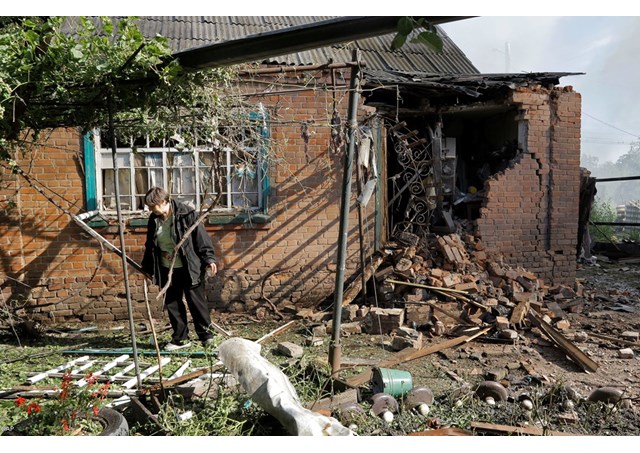
EU warns Russia amid Ukraine ceasefire violations

(Vatican Radio) The European Union has warned Russia that it will consider further sanctions if no progress is made on ceasefire arrangements in eastern Ukraine where pro-Russian separatists fight government forces in deadly clashes.
The warning came as shots interrupted a ceasefire around the rebel-held eastern city of Slovyansk.
Listen to Stefan Bos’ report:
At least three soldiers were reportedly killed here in the latest clashes. But residents are suffering too in Slovyansk, where some three civilians were killed in the fighting, explains a desperate woman.
"What is this? A truce?," she wondered. "How can it be called a truce? Can't President Poroshenko and his new government see what's happening? The people are dying."
Additionally officials say several Ukrainian soldiers were killed and a dozen injured since Friday.
CEASEFIRE MAINTAINED?
Despite the incidents, Ukraine's President Petro Poroshenko tries to maintain a ceasefire till later Monday as part of a wider peaceplan with pro-Russian separatists who have declared independence.
Yet he is under pressure to launch a new offensive. Soldiers and other demonstrators gathered near the presidential palace in Kyiv to demand an end of the ceasefire.
However Russian President Vladimir Putin called for the ceasefire to be extended during a telephone call Sunday with the leaders of France and Germany.
The two-hour conversation with German Chancellor Angela Merkel and French President Francois Hollande came ahead of a Monday deadline that the EU set for Russia and separatists to take steps to ease the violence or face further sanctions and isolation.
EU DEMANDS
The EU's demands include the return of three border checkpoints to Ukrainian control, verification of the cease-fire by monitors from the Organization for Security and Cooperation in Europe (OSCE) and talks to put Poroshenko's peace plan in place.
In one perceived hopeful sign, pro-Russian rebels met another EU demand by releasing the four remaining OSCE observers held in captivity in eastern Ukraine.
They already freed another team of four monitors last week. Analysts say violence can be traced back to protests over a free-trade pact with the EU.
Ukraine signed the last details of the Association Agreement with the EU last week, after the former Ukrainian president dumped it under pressure from Moscow in November, fueling huge demonstrations that eventually drove him from power.
Moscow responded to those events by annexing Ukraine's mainly Russian-speaking Crimean Peninsula in March, and the pro-Russia insurgency in eastern Ukraine broke out a month later.
The United States and the EU have slapped travel bans and asset freezes on members of Putin's inner circle, and threatened to impose more crippling sanctions against entire sectors of Russia's economy if the Kremlin fails to de-escalate the crisis.
| All the contents on this site are copyrighted ©. |


